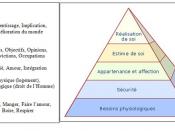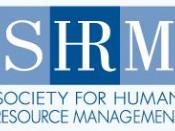Human Resource Management
Works Well In Theory But
Not In Practice
A Report submitted in partial fulfilment of the requirements for the award of Master of Science of the Loughborough University.
November 2004
ABSTRACT
This paper discusses the issue of whether Human Resource Management (HRM) works well in theory but not in practice, through the topic of 'Motivation and Reward'.
Through the use of both qualitative and quantitative data, this paper discusses the various theories of Motivation (Content and Process theories) and Reward Management Strategies that companies use as part of their broader Human Resource Management programs. The theories and strategies used are reviewed and assessed in terms of the benefits and constraints of their use in practice.
This paper has established that 'Motivation and Reward' strategies will generally work in practice, but the degree of success that they achieve will be dependant on the particular characteristics of the firm implementing the strategy and the needs and wants of their employees.
Concepts will inevitably work better in theory as it is assumed that human behaviour is rational, wherein in practice humans are often irrational. There is no substantiated universal picture of the 'individual' as the "needs and values of individuals are highly diverse and the organisations in which people work are very different" (Rolinson et al, 1998). Perhaps the common weakness of all theories within this particular field of Human Resource Management is that they have been designed from a positive perspective, focusing on their potential, rather than substituting their theory for examples of what has happened to organisations post implementation.
Since it is established that these concepts will work to some degree in practice, it is proposed that if companies implemented a hybrid of strategies, then they could improve their flexibility to the evolving needs of their employees, and...


